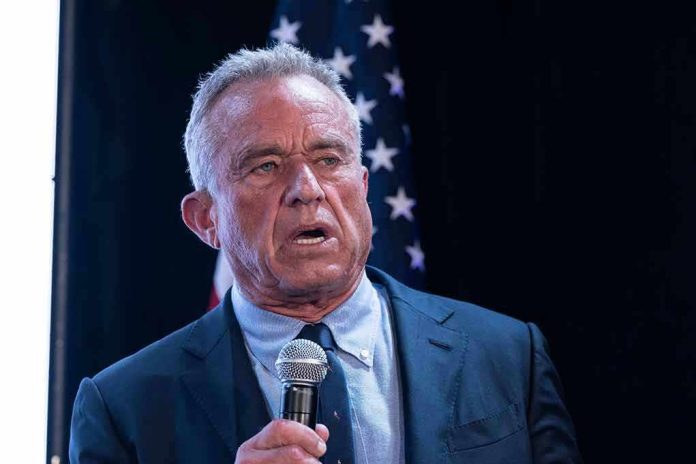
A sweeping new strategy aims to tackle childhood chronic diseases, uniting conservative and unexpected allies in a bold healthcare initiative.
Story Overview
- The MAHA Commission report proposes a comprehensive federal strategy to address childhood chronic diseases.
- Unusual alliances form between GOP, environmentalists, and tech firms under the new initiative.
- Significant restructuring within HHS and creation of new biomedical research offices are proposed.
- The initiative draws bipartisan support, focusing on pediatric health and innovative research.
MAHA Initiative and Its Unlikely Coalition
On September 9, 2025, the MAHA Commission released its second major report, detailing a groundbreaking federal approach to combat the rising tide of chronic diseases in American children. This initiative is not just another policy proposal; it is a call for unprecedented coordination across federal agencies, led by the Department of Health and Human Services (HHS). Notably, this move has garnered support from not only traditional Republican allies but also environmental groups and tech companies, forming an unexpected coalition united by a common goal.
The coalition reflects a strategic shift in health policy that combines conservative principles with progressive goals. By focusing on reducing environmental toxins and leveraging AI for health diagnostics, the MAHA initiative aims to address the root causes of chronic diseases. This approach aligns with conservative values of individual responsibility and limited government, while also embracing innovative solutions from diverse sectors.
Restructuring Federal Health Agencies
The MAHA report calls for significant changes within federal health agencies, including the creation of a new Administration for a Healthy America (AHA). This move aims to streamline efforts and enhance coordination among the HHS, FDA, EPA, and USDA. The proposal includes establishing specialized offices within the National Institutes of Health (NIH) to focus on biomedical research innovation and policy driven by data. Such restructuring signals a major shift in how health issues are addressed at the federal level, emphasizing the importance of a coordinated, holistic approach.
This comprehensive strategy not only targets healthcare reforms but also includes environmental and technological interventions. By involving tech firms and environmental groups, the initiative seeks to create a healthier environment for children, reducing exposure to toxins and improving food quality. This broad approach is a testament to the initiative’s dedication to addressing multiple factors contributing to childhood health challenges.
Impact and Reactions
The MAHA initiative has sparked varied reactions among stakeholders. While many praise the comprehensive and bipartisan nature of the effort, concerns linger regarding the speed and scope of the proposed changes. Some worry about potential bureaucratic overreach and the impact on existing healthcare workflows. However, the initiative’s focus on pediatric health has been widely welcomed, as it represents a rare area of bipartisan agreement.
New MAHA initiative around biomedical research is uniting the GOP with some unusual bed fellows https://t.co/xtQpFG58og
— Fox News Politics (@foxnewspolitics) October 7, 2025
As the initiative moves forward, it is poised to reshape health policy debates in the U.S., potentially reducing partisan gridlock while creating new dynamics within both political parties. The success of this effort will depend on effective implementation and continued collaboration across sectors. By prioritizing innovation and accountability, the MAHA initiative could pave the way for a healthier future for American children.
Sources:
MAHA Commission Report Details Federal Response




